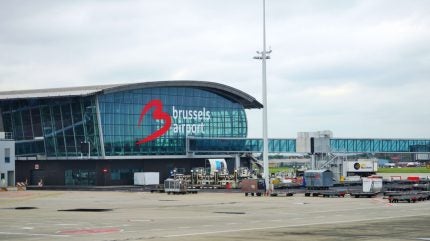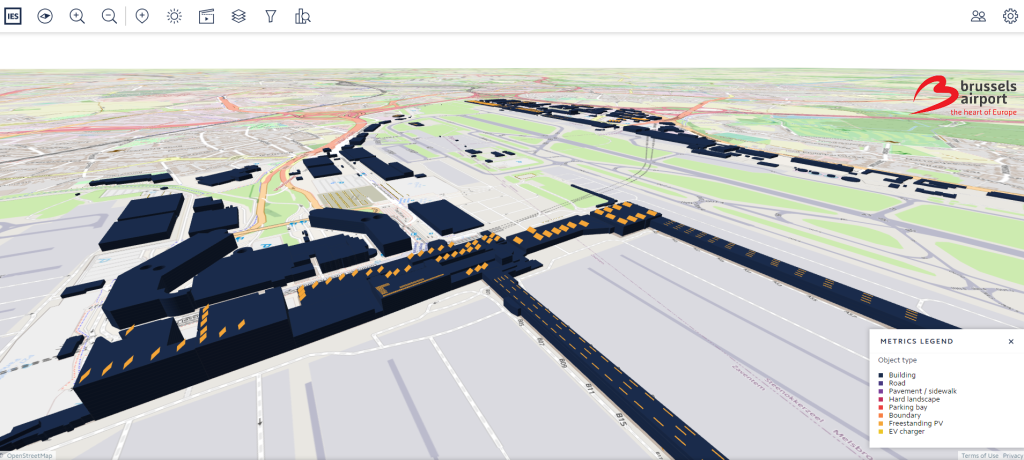
Climate tech firm IES has developed a digital twin for Brussels Airport in Belgium to demonstrate the viability of its plan to reach net zero emissions for its buildings by 2030 as part of the EU’s Stargate initiative.
The project, which was backed by a €24.8m grant from the European Commission’s Green Deal funds, saw IES use the virtual model of Brussels Airport (Zaventem) to model a range of climate solutions such as installing solar panels and EV chargers to identify the most effective route for net zero.
Christel Vandenhouten, head of sustainable development at Brussels Airport, said: “By deploying zero-carbon solutions within our airport buildings, promising opportunities exist to make a positive impact in reducing our scope 1 and 2 emissions.
“While there is still much work to be done, digital twin technology can help us simulate the impact of various net-zero solutions, so we can move forward with confidence in achieving the ambitious targets we have set.”
IES said that its model of the airport’s energy-saving measures, such as replacing gas boilers with heat pumps, showed a potential 63% reduction in CO2 emissions on 2019 levels.
The digital twin focussed on the 40 most energy-intensive buildings at the airport and is believed to be one of the first examples of a virtual model being used for full-scale decarbonisation modelling at an airport.
Access the most comprehensive Company Profiles on the market, powered by GlobalData. Save hours of research. Gain competitive edge.

Your download email will arrive shortly
We are confident about the unique quality of our Company Profiles. However, we want you to make the most beneficial decision for your business, so we offer a free sample that you can download by submitting the below form
By GlobalData

Giulia Barbano, research and development operations manager for IES, said: “Airports operate across vast space, demand large amounts of power, and experience complex energy interactions.
“Making any operational change is no small feat and such decisions must be backed by evidence, and that’s where digital twin technology can be a game-changer.”
Brussels Airport’s use of IES’ technology highlights the airport industry’s growing interest in using tech to inform net zero ambitions, with Gatwick also recently deploying a new data platform to inform the environmental impact of its construction projects.























